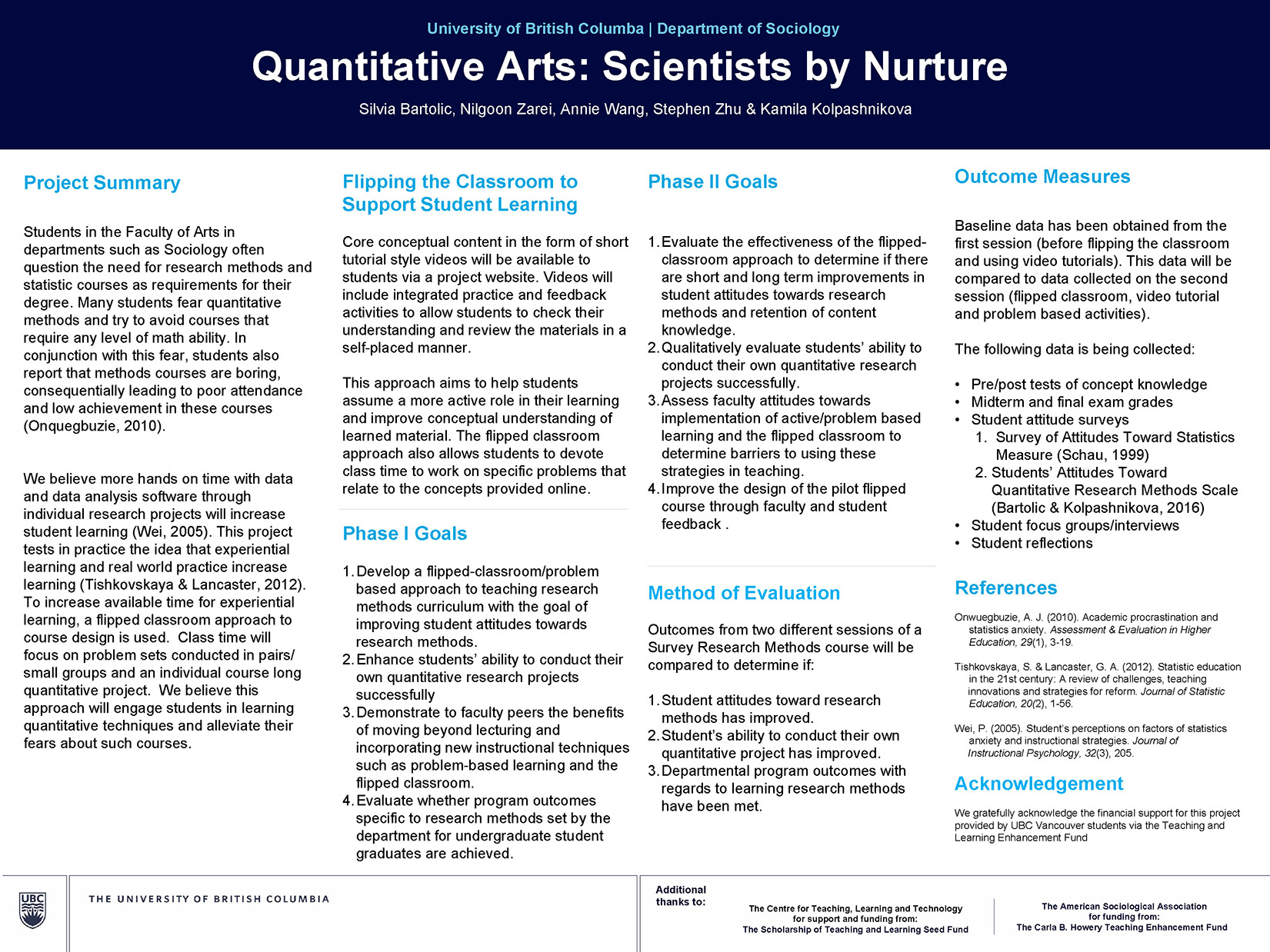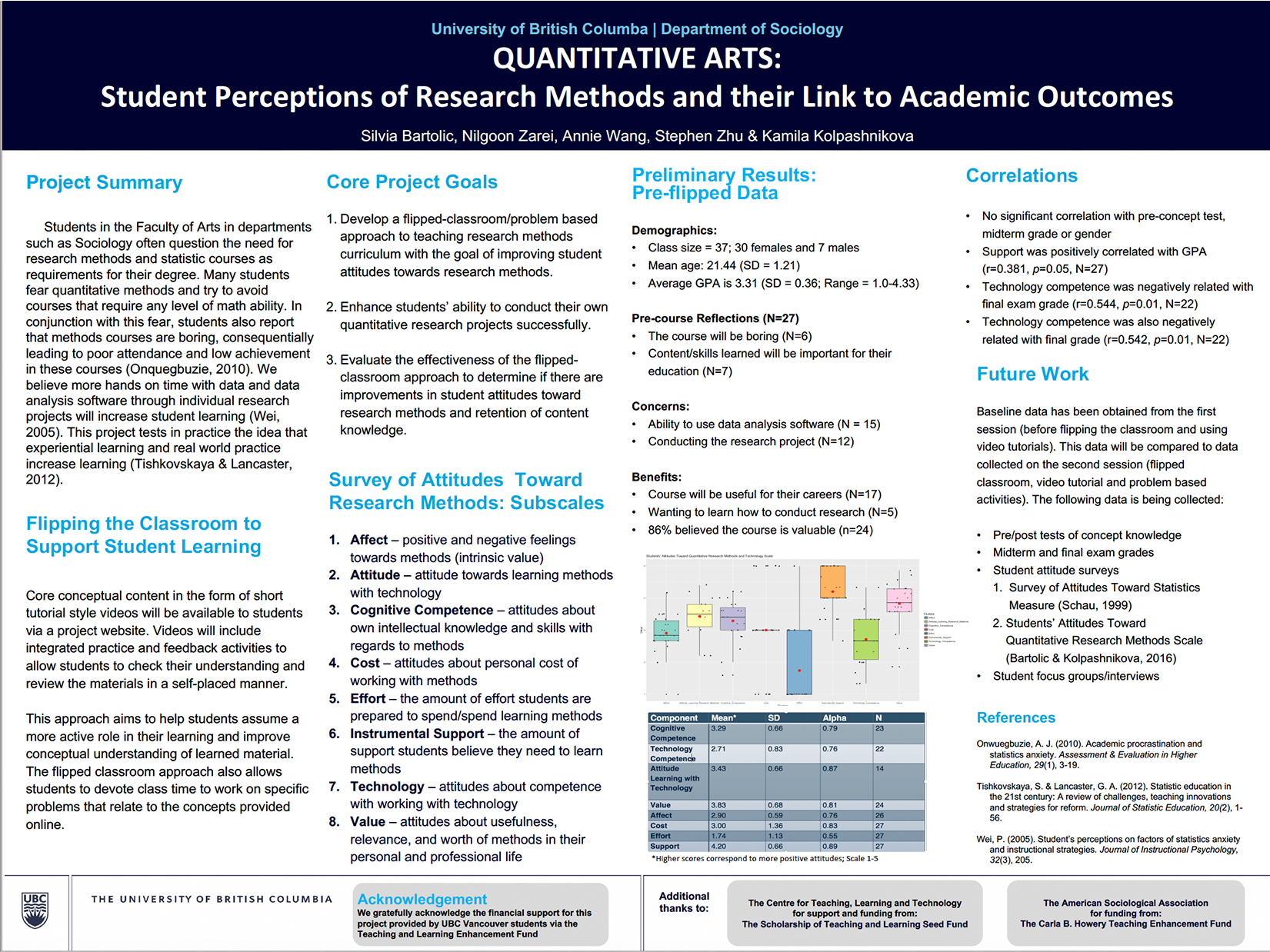| Title | Quantitative Arts: Scientists by Nurture – Evaluating Impact |
|---|---|
| Faculty/College/Unit | Arts |
| Status | Completed |
| Duration | 2 Year |
| Initiation | 04/01/2016 |
| Completion | 07/31/2018 |
| Funding Details | |
| Year 1: Project Title | Quantitative Arts: Scientists by Nurture |
| Year 1: Project Year | Year 1 |
| Year 1: Funding Year | 2016/2017 |
| Year 1: Project Type | Small TLEF |
| Year 1: Principal Investigator | Silvia Bartolic |
| Year 1: Funded Amount | 26,492 |
| Year 1: Team Members | Silvia Bartolic, Instructor, Sociology, Faculty of Arts |
| Year 1: Summary | Students in the Faculty of Arts in departments such as Sociology often question the need for research methods and statistics courses as requirements for their degree. Many students fear quantitative methods and try to avoid courses that require any level of math ability. In conjunction with this fear, students also report that methods courses are boring, leading to poor attendance and low achievement in these courses. Thus, the goals of this project are to 1) develop a flipped-classroom based approach to teaching research methods curriculum with the goal of improving student attitudes towards research methods, 2) enhance students’ ability to conduct their own quantitative research projects successfully, 3) demonstrate to faculty peers the benefits of moving beyond lecturing and incorporating new instructional techniques such as problem-based learning and flipping the classroom and 4) evaluate whether program outcomes set by the department for undergraduate student graduates are achieved. |
| Year 1: TLEF Showcase |  |
| Year 2: Project Year | Year 2 |
| Year 2: Funding Year | 2017/2018 |
| Year 2: Project Type | Small TLEF |
| Year 2: Principal Investigator | Silvia Bartolic |
| Year 2: Funded Amount | 18,523 |
| Year 2: Team Members | Silvia Bartolic, Instructor, Sociology, Faculty of Arts |
| Year 2: Summary | Students in the Faculty of Arts in departments such as Sociology often question the need for research methods and statistics courses as requirements for their degree. Many students fear quantitative methods and avoid courses that require any level of math ability. Students also report that methods courses are boring, leading to poor attendance and low achievement in these courses. The first phase of this project focused on collecting baseline data from a traditional lecture course in survey research methods and creating video tutorials and problem sets for use in a flipped classroom. The goals of the second phase of this project are to 1) evaluate the effectiveness of the flipped classroom approach to determine if there are improvements in student attitudes towards research methods and retention of content knowledge, 2) qualitatively evaluate students’ ability to conduct quantitative research projects successfully and 3) assess faculty attitudes towards implementation of active/problem based learning and the flipped classroom to determine barriers to use of these strategies in teaching. |
| Year 2: TLEF Showcase |  |